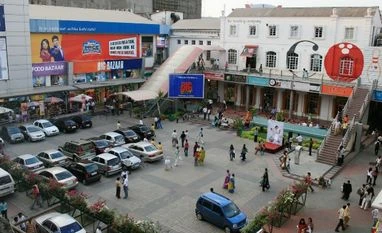This naturally led to investors' losing confidence in realty stocks. DLF, one of the largest real estate developers, lost 24% since November 8 when the move to ban old notes of Rs 500 and Rs 1000 notes was announced. Others such HDIL and Prestige Estate have lost near 19%. This took the 11 members BSE Realty Index down by 15% as 10 stocks fell. Sensex, the benchmark index of the exchange fell 5% in the same period.
The only outlier in the index is Phoenix Mills with its stock rising 8%. The Mumbai-based company is the biggest mall owner and operator in the country with a namesake chain of malls. This includes six million square feet of mall assets in Lower Parel area of Mumbai. It is among top three highest revenue earning malls in the country.
"Phoenix remains relatively insulated as it is largely a rental-based model with marquee properties," said Adidev Chattopadhyay, an analyst with Elara Securities in a recent report. "We believe that the stock offers an attractive entry point at current valuations," he said.
AK Prabhakar, head of research at IDBI Capital expressed similar views. "A majority of commercial property developers deal through banks, so demonetisation would not significantly affect them," he says. "In fact after demonetisation, a lot of consumption has shifted to organised retailers and malls which will benefit companies such as Phoenix," he says.
It is not that mall operators are not affected by the government's move. Sales at retail chains have dropped. This will affect operators who earn through a fixed rental, besides revenue share from their tenants' business.
But the drop in retail sales is temporary compared to the structural impact on the sale of residential and commercial properties that have seen rampant use of cash. "Consumption at the malls have restored to 80-85 per cent of the normal levels," says Atul Ruia, joint managing director, at Phoenix Mills. "By January, we believe it will reach 100 per cent," he says. He declined to discuss the stock's recent performance.
While the mall operations are the dominant part of the company's business, it is also in the residential properties. The company reported consolidated revenue of Rs 490 crore at the end of the quarter ending September, this exceeded analysts' expectations as revenue from Kessaku luxury residential project in Bengaluru started getting recognition in this quarter. As per the reports of Elara Capital, EBITDA of Rs 230 crore and adjusted profit after tax of Rs 50 crore were 8 per cent higher than estimates on the back of higher margins from this project.
Phoenix is also in talks with investors such as CPPIB to sell a stake in its mall projects in Bengaluru and Pune for about $300 million. In an earlier interaction, Ruia had said that the company would plough back the stake sale proceeds to build or acquire new malls.
)